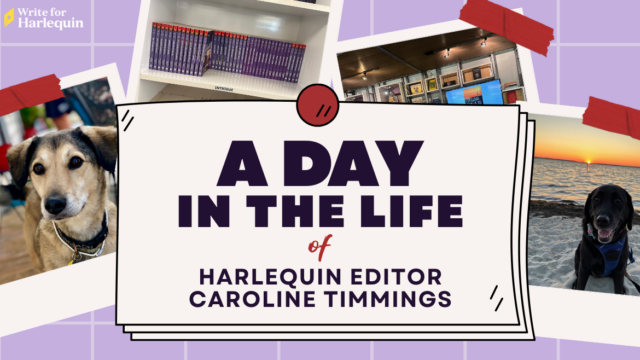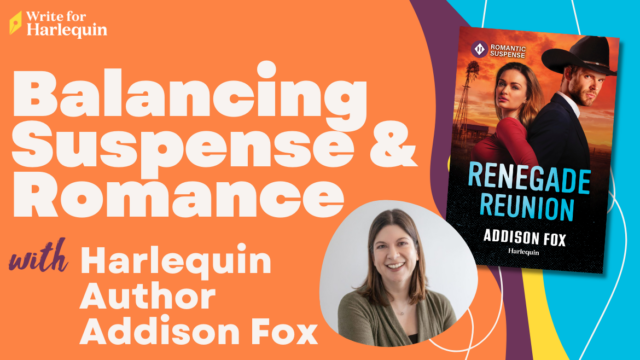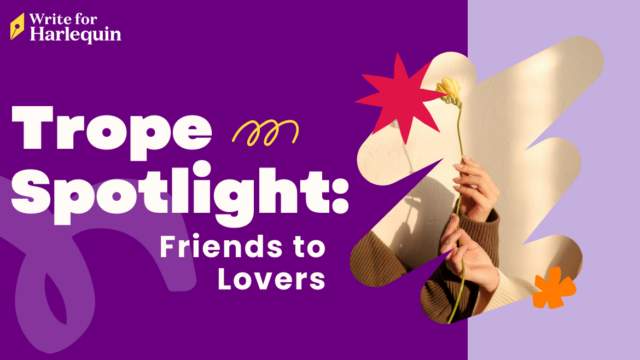Happy Wednesday! It’s time to shed those stereotypes in this week’s Advice from the Archives. This gem is from the Behind the Scenes blog first posted in 2011! Enjoy 🙂
Now, Romance HQ is pretty open-minded – as you know, we’re pretty much constantly encouraging authors to push the series boundaries with unique emotional conflicts! We’ve had some utterly fab books as a result, but there is one issue that we don’t see tackled all that regularly, and that’s gender role reversal – when the balance of power in the central relationship in some way shifts towards the heroine. AKA, a heroine who is older than, professionally senior to and/ or falls in love after the hero.
We can make some speculative suggestions about why this isn’t such a common theme– perhaps there’s a perception that a younger and/ or less stereotypically “successful” hero might lack the strength, charisma and “provider” ability of an older hero? However, it’s also the case that an older/ more successful/ less emotionally available heroine – a woman who’s really lived, loved and lost – allows for an exceptionally complex and rewarding exploration of emotional conflict.
Harlequin prides itself on publishing books by women, about women and for women – of any age and walk in life! So, in the light of this, the big question that Romance HQ is discussing this week is…
Gender role reversal: to avoid or embrace?
It’s commonplace that category romance taps into the world of female fantasies. Romance HQ believes that those various fantasies should and do include female professional success not being a barrier to relationships and finding love at all stages in life. (Age is just a number! Love isn’t the preserve of the young and perky!)
So, let’s confront some gender/ relationship stereotypes, explore some role reversal scenarios, and open up the debate about how to make them appeal to every single reader…
The older heroine
The ‘silver fox’ fantasy is already well-established but these days, it’s the ‘older woman’ fantasy that’s filtering through into popular culture more and more –Cougar Town, anyone? Not just about sensual thrills, it’s also a scenario that provides immense emotional possibilities – just think of all the heart-wrenching reasons why an older heroine might need a young, charismatic hero to teach her the meaning of life/ love/ fun again!
The risk? The reader perceives the hero as too immature to be worthy of the heroine.
The cure! Taking age out of the conflict-equation and giving your characters a situation that forces the hero to prove he’s perfectly capable of supporting the heroine, no matter what dramas they might face. When in doubt, remember Samantha and Smith in SATC – could anyone honestly say they felt Smith was too young or emotionally immature for her after he shaved his head to support her through chemo?
Heroine as boss
No more glass ceilings for these heroines – they’ve risen to the top and not even the delicious attractions of their hunky male subordinate will interfere with their professional success!
The risk? The hero is emasculated by the heroine’s strength and success and/or the perception he’s lacking in ambition.
The cure! Ensuring your hero is not 100% but 200% comfortable with his situation in life. After all, professional satisfaction doesn’t have to equal promotions/ massive pay-checks – let’s see that he could do anything he wants, but is happy where he is because he’s following his dream. (By the way, if you’re keen to run with such an empowered heroine, you might want to think about throwing in an extra dose of charisma for your hero – just to keep that dynamic between them truly electric!)
Can the man say “I love you” first?
Very interesting question. After all, we can’t be the only people who, in real life, would definitely pick a man who can say “I love you” easily over an emotionally stunted man who doesn’t choke it out until it’s almost too late! So why is the emotionally available hero so under-represented in romantic fiction, when in reality, it’s perhaps the most common fantasy of all? Surely being emotionally honest doesn’t have to preclude either an emotional conflict, or strength of character?
The risk? Admitting “I love you” first makes the hero look weak – like he’s lost in the game of love.
The cure! Balancing male emotional honesty and availability with restraint and strength. “I love you” can be a sexy, exciting and powerful admission, especially if the heroine is still struggling with her own emotions. But “I love you and can’t live without you” might be verging on the needy side…!
So, whatever your role reversal scenario – a man who’s been a victim of domestic abuse? A heroine propositioning a hero? An older heroine falling pregnant after one night stand with younger colleague? – reassure yourself that it’s an incredibly rich area of conflict and we’d love to see how you pull it off!
As ever, it’s all in the execution, but here’s hoping the above examples offer some useful tips…or at the very least, open up the debate about what place role reversal has in contemporary romance!
Happy writing!




